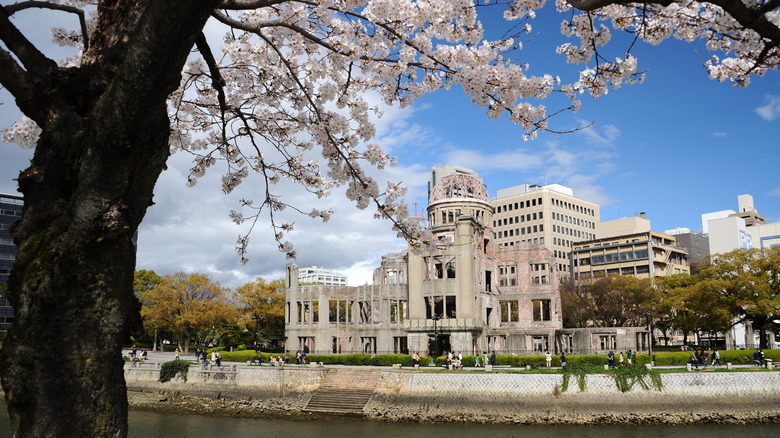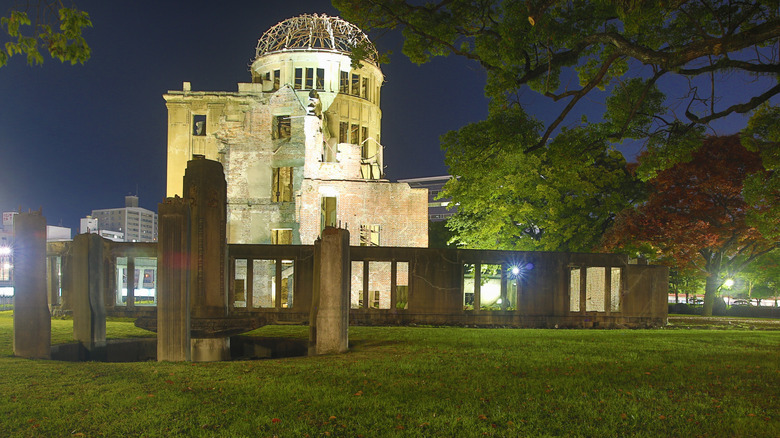The True Impact Of The Atomic Bomb According To Japanese Citizens
The United States was well acquainted with the difficulties that came with securing victory against the Imperial Japanese Army and Navy by 1945. However, the ferocity of the fighting only intensified as American forces landed on Japanese soil for the first time; first on Iwo Jima, and then Okinawa. With these previews of what an invasion of the home islands might be like, the U.S. had two options: deploy its available atomic weapons to force a surrender, or carry on with the invasion plans.
The destruction of Hiroshima and Nagasaki, combined with the threat of Soviet invasion, prompted Japan to surrender. While it took some time for the Japanese high command to realize just how devastating the new weapons could be, the residents of those cities were plunged into the reality of atomic warfare. As survivors have opened up on their experience in past decades, they reveal not only the severe damage to their health, but to the very social fabric of their community as desperation gripped their hearts and minds (via Ranker).
Discrimination and kidnapping awaited many survivors
According to Stephan Roget, writing at Ranker, most people who were not vaporized by the bomb itself faced burns which melted clothing to their skin, dehydration, building fragments from the force of the blast, blindness, and death by radiation within days. All this was suffered against the backdrop of human remains, rubble, and ash littering the ground. Many doctors were killed in the attack, while those who survived were seldom able to mitigate the effects (via Atomic Heritage Foundation). This is due to both the understandable lack of understanding on radiation damage, and American occupation forces classifying information vital to treatment. In the immediate aftermath, people had to face these horrific circumstances as they searched for or buried whoever they could find.
Many children were left orphaned, something that the Yakuza (the Japanese equivalent to the Mafia, via Britannica) took advantage of. Either out of desperation or because they were kidnapped and sold, many orphans found themselves in the employment of the Yakuza (via Deutsche Presse-Agentur). If they were among survivors left with visible burns from the bombing, they were also often discriminated against, as their condition was believed to be not only contagious, but hereditary. Despite the hardship they faced, many survivors have worked to share their stories with subsequent generations and tell them what total war would mean in the modern world (via TIME).

